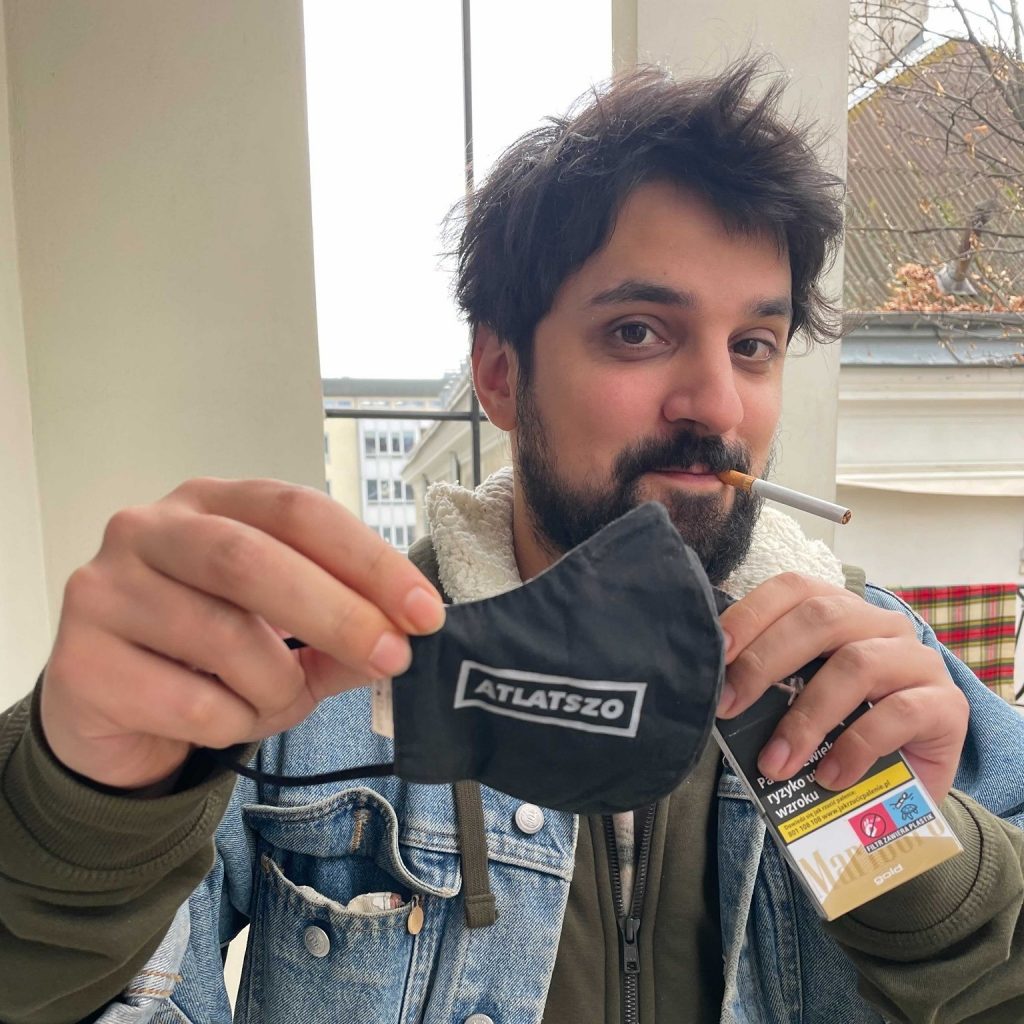The https://english.atlatszo.hu use cookies to track and profile customers such as action tags and pixel tracking on our website to assist our marketing. On our website we use technical, analytical, marketing and preference cookies. These are necessary for our site to work properly and to give us inforamation about how our site is used. See Cookies Policy
Partners washing their hands of Sovereignty Protection Office confidentiality-breaching information requests
Association with the Sovereignty Protection Office and its overreaching information requests has seemingly become uncomfortable to some of its hopeful partners. The Hungarian central bank and the data protection authority both deny signing a cooperation agreement with the Office – while one of them has already started to inform. TI Hungary’s legal director believes that the Office cannot borrow powers from other bodies.
In recent weeks, several hopeful cooperating partners of the Sovereignty Protection Office (SPO) made public statements – which comes as a new development with regard to the information requests SPO president Tamás Lánczi earlier sent to heads of several state bodies and regulated professional chambers.

These documents, previously hidden from the public, were obtained and subsequently published by Átlátszó through a freedom of information lawsuit. They contain letters signed by Lánczi, as well as some replies from the recipients. In all letters, Lánczi asked the addressees to continuously collect information for the SPO.
A particularly significant feature of Lánczi’s letters is that in many cases his queries for information concerned data that the addressee is not legally entitled to provide to the SPO. Examples include information covered by financial privacy, attorney-client privilege, and auditor confidentiality rules.
In this article, Átlátszó analyzes what the public has learned from the public statements made since.
Someone is not telling the truth
The fact that Lánczi had been making such enquiries in the background originally came to light in May. At the time, the newsletter of the Hungarian Bar Association reported that its president had received a request from Lánczi that he could not legally comply with.
Subsequently, the Office published the full correspondence between these two organizations on their website. In a statement accompanying the documents, the SPO wrote that they had already contacted “several” organizations, had received “a positive response from all the organizations contacted” and had started “cooperation with these actors”.
Request recipient Hungarian Chamber of Auditors apparently contradicted this statement in a reply to Átlátszó’s question asking how they had responded to Lánczi’s inquiry. In an e-mail, the Chamber said that they informed Lánczi that they could not legally disclose information covered by auditor confidentiality.
There has been “no reaction to this reply from the SPO”, the Chamber wrote. In other words, Lánczi’s office has not received a positive response from the Chamber of Auditors and has not started any cooperation.
Their reply letter was sent to the SPO “at the end of April”, the Chamber wrote. This reply letter was not handed over to Átlátszó by the SPO, despite a court ruling for the Office to transfer copies of all correspondence dated before 17 May.
The Chamber’s response was already reported by Átlátszó. Heads of two further organizations contacted by Lánczi, the National Bank of Hungary (MNB) and the National Authority for Data Protection and Freedom of Information (NAIH) have both since indicated in public statements that they do not currently have a live cooperation agreement with the SPO.
Both statements raise further questions about the veracity of the SPO’s earlier claims.
Information provided without an agreement
The statements of the MNB and the NAIH should be interpreted separately in the light of what exactly they claim in their new statements, what Lánczi had previously asked them to do, and what their response was.
In the public statements of the two organizations, the only concrete claims are that they have “currently no cooperation agreement” (MNB) and “no live cooperation agreement” (NAIH) with the SPO.
On the one hand, these claims do not contain any guarantees for the future. On the other hand, they do not contain any assertion as to whether in practice the two organizations do already collect and transmit information to the SPO or not. At present the public has no knowledge on this matter.
In a press release, MNB sent Átlátszó after our original story was published, the central bank wrote that they do not have an agreement with the SPO now, but when they do, they will publish it on the central bank’s website. They also indicated their commitment to the financial privacy of bank customers. (One of Lánczi’s particularly notable requests to the central bank was that the SPO should receive reports on the private bank accounts of individuals and companies.)
MNB’s communication can be seen as a credible light since its governor György Matolcsy had previously written to Lánczi that the cooperation with the SPO would presumably be spelled out in a “cooperation agreement” after its concrete elements and the “framework for cooperation” have been worked out.
In the letters Lánczi sent to Matolcsy and Attila Péterfalvi, who is the president of NAIH, no specific objective to establish a written cooperation agreement between the parties on cooperation can be found. In both letters, Lánczi merely indicated that the SPO “could” conclude agreements with other bodies, and then simply listed his requests.
The statement of the president of NAIH Péterfalvi provided to atv.hu can be seen in a less credible light. In his reply to Lánczi’s request, Péterfalvi essentially agreed to the information-gathering requests without any further ado and made no mention of a written cooperation agreement.
In fact, in his letter, Péterfalvi had even started to inform SPO “on two relevant groups of cases”. Therefore, it is difficult to attach any significance to the statement that the NAIH does not have a live agreement with the Office.
It is, however, important to note that (unlike with the MNB) Lánczi did not make any requests to the NAIH that clearly went beyond the NAIH’s legal mandate, and that Péterfalvi made it clear in his reply letter that his authority would inform the SPO “by sending anonymized submissions”.
Ligeti: SPO confusing their role
According to lawyer Miklós Ligeti, the situation wouldn’t become more clear even if the SPO were to conclude written cooperation agreements with all the organisations in question.
“The SPO is not entitled to circumvent the limits of, and expand its own powers by concluding all kinds of informal cooperation agreements with its counterparties sharing their public functions, and this prohibition applies in particular to the collection and transfer of sensitive data,” Ligeti wrote in an e-mail to Átlátszó.
Ligeti is the legal director of Transparency International Hungary (TI), an NGO under investigation by the SPO. Átlátszó exchanged emails with him before Ligeti had a debate with Lánczi at a public event last weekend.
The lawyer wrote that even though TI is challenging the so-called law on the protection of sovereignty on constitutional grounds, it is clear that “the law defines the powers of the SPO in a negative sense”.
According to Ligeti, on the one hand, “it is quite clear that the SPO does not exercise the powers of an investigative authority, nor does it perform anti-money laundering functions”, on the other, the Office is only entitled to handle protected and personal data within the scope of its own functions and only for a specific purpose, and thirdly, “neither the SPO nor any other authority may collect and handle personal data and including protected information such as private financial information on simply to stockpile”.
“The SPO may not borrow” the “anti-money laundering powers of other authorities and may not ask these authorities to process data for the SPO and to provide data to the SPO in the exercise of their statutory powers, and requesting bank account turnover and transaction data from the MNB is a clear misuse of its role”, the lawyer added.
Written and translated by Márton Sarkadi Nagy. The Hungarian version of this story is available here.
Share:
Your support matters. Your donation helps us to uncover the truth.
- PayPal
- Bank transfer
- Patreon
- Benevity
Support our work with a PayPal donation to the Átlátszónet Foundation! Thank you.
Support our work by bank transfer to the account of the Átlátszónet Foundation. Please add in the comments: “Donation”
Beneficiary: Átlátszónet Alapítvány, bank name and address: Raiffeisen Bank, H-1054 Budapest, Akadémia utca 6.
EUR: IBAN HU36 1201 1265 0142 5189 0040 0002
USD: IBAN HU36 1201 1265 0142 5189 0050 0009
HUF: IBAN HU78 1201 1265 0142 5189 0030 0005
SWIFT: UBRTHUHB
Be a follower on Patreon
Support us on Benevity!

